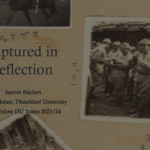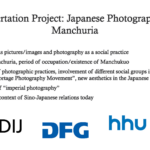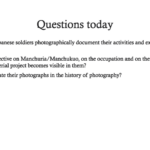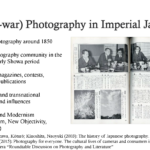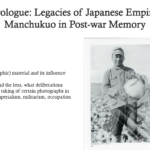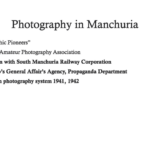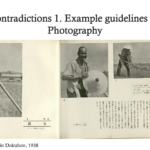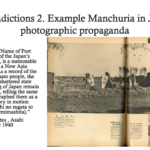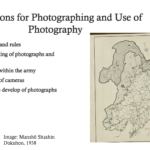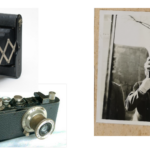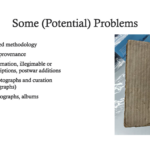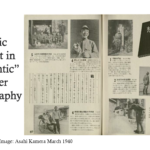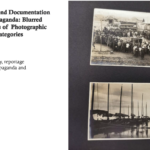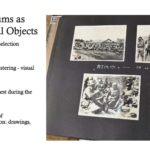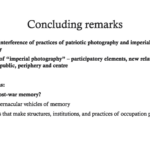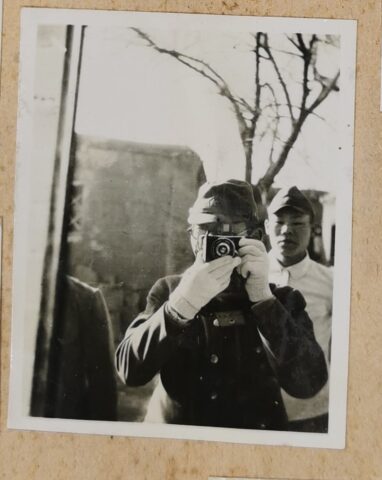
ダウンロード
場所
DIJ (access) and online
登録情報
This is a past event. Registration is no longer possible.
DIJ Mailing Lists
Please subscribe below to stay informed about our research activities, events & publications:
Captured in Reflection – Japanese photography in Manchuria
2024年4月25日
Jasmin Rückert, Heinrich Heine University Düsseldorf/DIJ Tokyo
From 1932 to 1945, professional Japanese photographers, civilians, and soldiers took many pictures in Manchuria and North China. The Japanese puppet state Manchukuo, founded in 1932, took on multifaceted roles as an experimental ground for Japanese press regulations, aesthetic and social trends of creating and using photographs, and in the training and employment of Japanese amateur and professional photographers. As cameras became more accessible, new social groups participated in the visual economy of the empire. After the official commencement of the war with China in 1937 they began to contribute to the ‘National Reportage Movement’. Japanese authorities employed photographic propaganda to convince international partners and the Japanese population of the righteousness of the Japanese government’s and Imperial Army’s activities on the continent. However, Japanese soldiers and civilians also used the camera to document and produce memories of their daily lives and experiences in China for themselves.
This talk brought forward new perspectives on photographic practices and on visually over- or underrepresented aspects of the Japanese occupation of Manchuria and North China. It introduced examples of private photo albums by soldiers stationed in Manchuria and discusses their creation as processes of selecting and ordering images, allowing for a later identification of places, people and situations. The presentation traced the adaptation of stylistic elements from propagandistic material and of ideological viewpoints in these hitherto under-researched media and shows how the albums function as containers of both personal and collective memory. Drawing on visual anthropology and media history, it showed connections between “imperial” and “patriotic” photography, and between vernacular and formal photographic repertoires. The talk further questioned how and whether the reporting and photographic illustrations in Japanese media and private archives contributed to sustain visual narrative tropes of war and occupation that persisted into the post-war period.
The talk was attended by more than 50 people online and onsite. The Q&A session focused on issues regarding the contextualisation of the photos and albums, the circumstances of their production, and the role of photographic sources in postwar and contemporary Sino-Japanese relations.
Jasmin Rückert is currently completing a Ph.D. in Modern Japanese Studies at Heinrich Heine University Düsseldorf, Germany. Her dissertation focuses on modern Japan and its imperial ambitions in Asia, particularly in China in the period 1931-1945. Her broader research interests range from gender to the history of science and technology. Since October 2023 she has been a PhD student at the DIJ.
